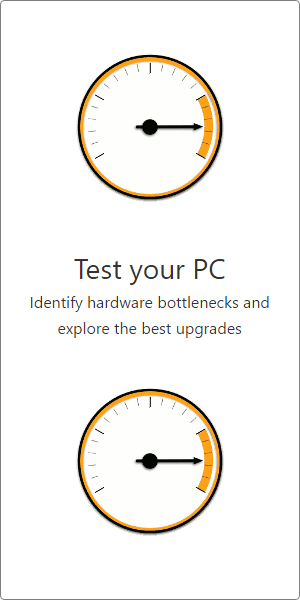Effective Speed
+0%
Poor: 64%
Great: 104%
SPEED RANK: 366th / 1080
Poor: 58%
Great: 108%
SPEED RANK: 360th / 1080
| Effective Speed
Effective SSD Speed |
88.3 % | 88.6 % | +0% |
Average Score
+4%
Peak Score
+5%
Value & Sentiment
+∞%
Nice To Haves
+1%
Specifications
| Capacity
Capacity |
128GB | 240GB |
Conclusion
Average Bench 88.3%
Average Bench 88.6%
User Builds
19,372
2,356
Systems with these SSDs
Top Builds that include these SSDs

 SSD
SSD
